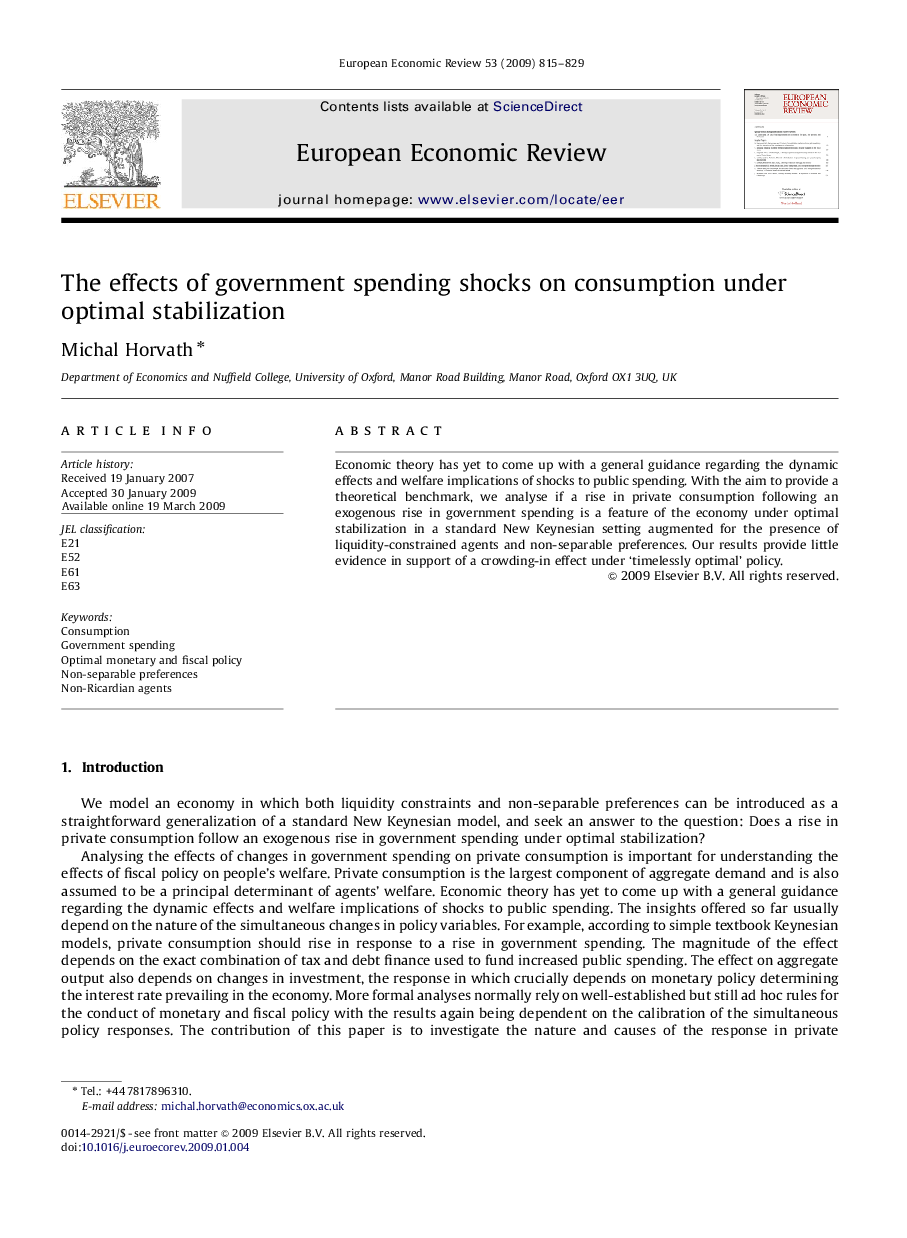| Article ID | Journal | Published Year | Pages | File Type |
|---|---|---|---|---|
| 5067295 | European Economic Review | 2009 | 15 Pages |
Abstract
Economic theory has yet to come up with a general guidance regarding the dynamic effects and welfare implications of shocks to public spending. With the aim to provide a theoretical benchmark, we analyse if a rise in private consumption following an exogenous rise in government spending is a feature of the economy under optimal stabilization in a standard New Keynesian setting augmented for the presence of liquidity-constrained agents and non-separable preferences. Our results provide little evidence in support of a crowding-in effect under 'timelessly optimal' policy.
Related Topics
Social Sciences and Humanities
Economics, Econometrics and Finance
Economics and Econometrics
Authors
Michal Horvath,
